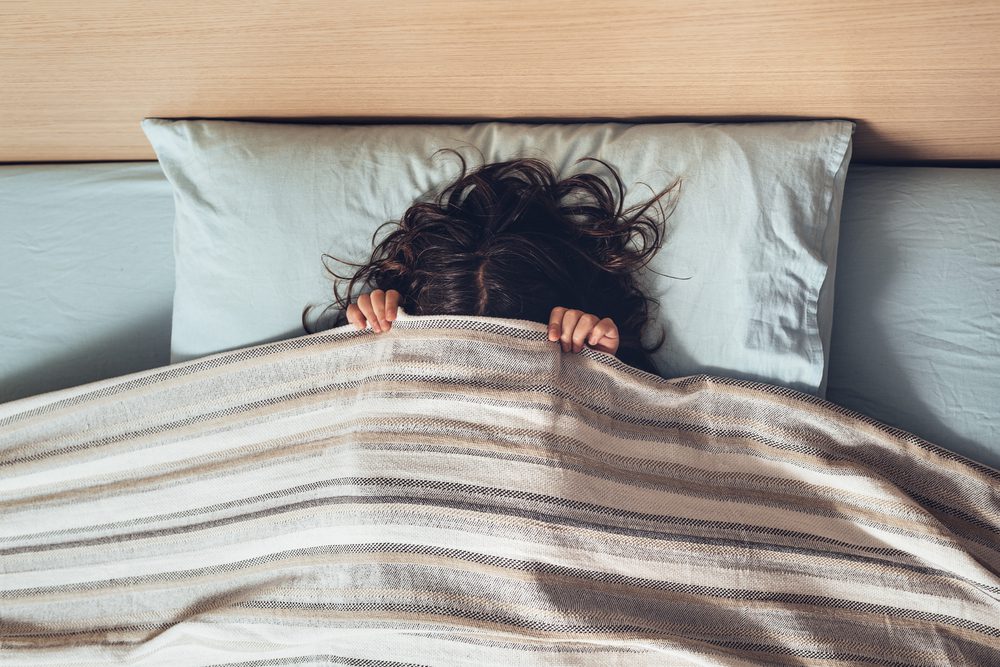Sleepwalking, or somnambulism, refers to the act of walking or performing complex motor actions while asleep. Generally, sleepwalking occurs during the non-rapid eye movement (NREM) stage of sleep. We get the most NREM sleep in the first few hours after falling asleep, so sleepwalking occurs most often during this period. A sleepwalking event may last anywhere from several minutes to an hour.
Children who experience sleepwalking often do not seek treatment, as it is common for the events to stop after puberty. However, sleepwalking can potentially be violent or harmful. Treatment is recommended by experts if you or a loved one is experiencing frequent sleepwalking episodes or if they are causing psychological or physical harm.
How Common is Sleepwalking?
It is difficult to accurately measure the prevalence of sleepwalking since the sleepwalker usually has no memory of the event when they wake. Prevalence studies rely on self-reporting and observation from others, such as parents, partners, or roommates. There does, however, appear to be a significant difference in the prevalence of sleepwalking in children versus adults.
Sleepwalking in Children
Sleepwalking is more common in childhood than in any other stage of life. One study found that 29% of children experience sleepwalking, and the prevalence peaks between the ages of 10 years old and 13 years old.
Sleepwalking in Adults
Adults are less likely to experience sleepwalking since the events usually decrease or stop altogether once puberty hits. However, it is possible to continue sleepwalking beyond puberty or experience a sleepwalking event for the first time in adulthood. It is estimated that about 2% to 4% of adults sleepwalk, and the prevalence lessens with age.
What Causes Sleepwalking?
Many factors may influence sleepwalking. Researchers have investigated numerous possible causes for sleepwalking, including the following:
Genetics
According to a sleepwalking study conducted with twins, there appears to be a significant genetic influence in sleepwalking for children and adults. Additionally, children are more likely to sleepwalk if one or both of their parents have a history of sleepwalking.
Sleep Terrors
Sleep terrors involve feelings of panic and distress during sleep. People experiencing a sleep terror often scream, cry, flail, or kick in their sleep until the terror passes. Sleep terrors are more likely in early childhood around the age of 18 months. Children who have experienced sleep terrors in early childhood are more likely to develop sleepwalking tendencies later in childhood.
Alcohol and Medication
Alcohol and certain medications can both negatively affect sleep quality and increase the possibility of sleepwalking. It is important to read medication labels and understand the possible side effects. There are many medications or combinations of medications that have been shown to increase the frequency of sleepwalking events. One study reviewed 29 different drugs that may induce sleepwalking, with the most prominent being zolpidem and sodium oxybate.
Stress
Stress affects the body and mind in many ways. Stressful events such as family conflict, loss, work-related issues, or even changes to a sleep environment can trigger sleepwalking. While stress has been shown as a present factor in those experiencing sleepwalking, it is not necessarily the sole cause of sleepwalking. Many people experience stress, but sleepwalking is still a relatively uncommon occurrence.
Sleep Deprivation
Getting quality sleep is essential for a number of reasons. There is some evidence that sleep deprivation may be correlated to sleepwalking. Although, much like stress, sleep deprivation is not likely a cause of sleepwalking, it is commonly reported in people who experience sleepwalking. One study found that 25 hours of sleep deprivation affected the frequency and complexity of sleepwalking events in those who were already predisposed to sleepwalking.
Should I Wake a Sleepwalker?
It is important to provide an environment that is safe for the sleepwalker. While it may be difficult to wake a sleepwalker, it is not seen as dangerous. Still, the focus should be on preventing harm rather than stopping the behavior. If a sleepwalker is awakened during an event, they will usually be rather disoriented and may need some assistance getting back to bed.
How is Sleepwalking Treated?
Childhood sleepwalking is fairly common and usually does not require treatment. Sleepwalking episodes will generally decrease with age and stop at puberty. However, if a child or adult is experiencing any harmful or concerning behavior, treatment is recommended. Treatment depends on each individual as there are several potential factors involved. Treatment may include one or more of the following approaches:
- Improve Sleep Hygiene: One of the basic treatment methods for reducing sleepwalking events is to improve your sleep hygiene. Getting regular quality sleep is beneficial to your body and mind. Since sleep deprivation is a potential risk factor for sleepwalkers, improving the quality of sleep may help. Make healthy choices to ensure a good night of sleep, and prepare your bedroom environment by minimizing outside light, noises, and distractions.
- Behavioral Therapies: Cognitive behavioral therapy, mindfulness-based stress reduction, and hypnotherapy have been studied in people who sleepwalk, with some promising results.
- Scheduled Awakenings: For children, scheduled awakenings are recommended as a preventative method for sleepwalking. This method involves waking the child a few hours after falling asleep before they fall into NREM sleep, since this is when sleepwalking events occur.
- Medications: It is typically recommended that non-medication methods be attempted first, but certain medications have been used as a treatment for sleepwalking and other sleep disorders. Benzodiazepines, some antidepressants, and even melatonin may be effective treatment options for people who do not benefit from other approaches.
Sleepwalking is relatively harmless in many cases, but it can create problems for some people. The causes of sleepwalking are varied and, while there are some commonalities, where the behavior stems from will depend on the individual. Talk to a professional to see what method of treatment is right for you or your loved one.
References
Ask the Sleep Doctor
Have questions about sleep? Submit them here! We use your questions to help us decide topics for articles, videos, and newsletters. We try to answer as many questions as possible. You can also send us an email. Please note, we cannot provide specific medical advice, and always recommend you contact your doctor for any medical matters.



